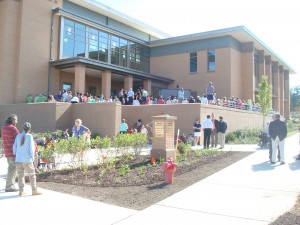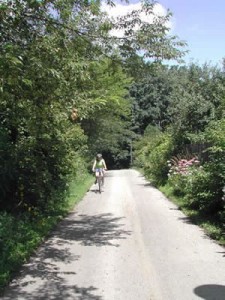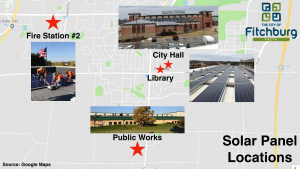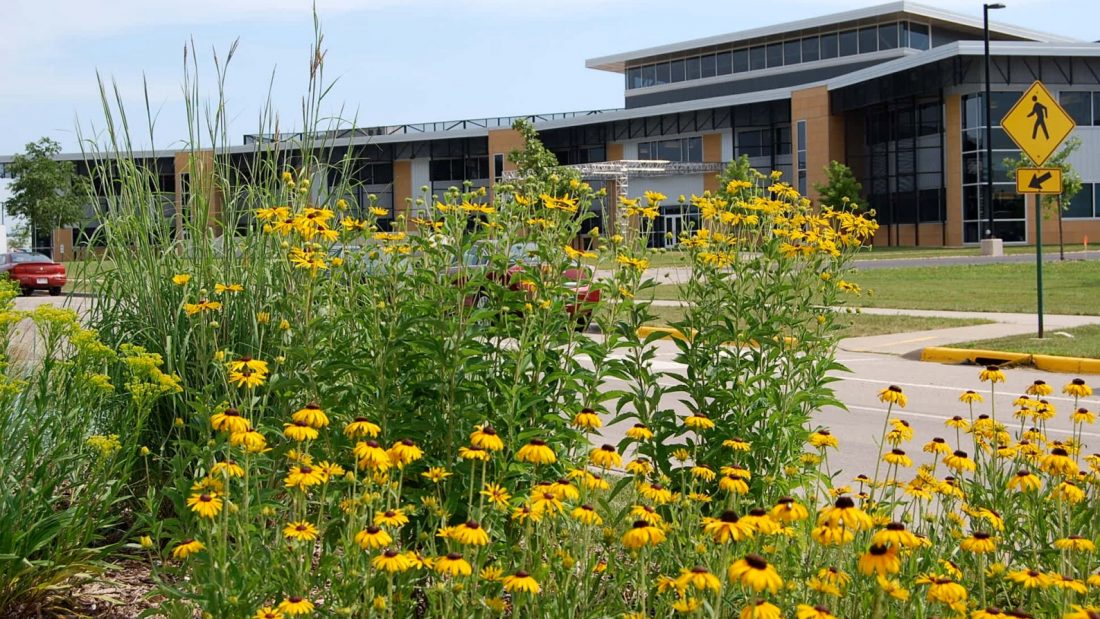In the 1980s, Fitchburg was a leading actor in community-wide recycling policies to reduce the demand on landfills and virgin materials. The City has taken actions to protect its waterways from urban storm water runoff and provided a number of high-quality bike trails for residents to enjoy its natural beauties and commute to work without a car. Sustainability has always been an important issue for Fitchburg. The Resource Conservation Commission (RCC), which started as a committee in the 1980s, led the push for Fitchburg to commit to reducing greenhouse gas emissions through reductions in energy use and investment in renewable energy technology. RCC has engaged residents by organizing and hosting numerous public forums and expos on topics including transportation options, construction waste recycling, and geothermal heat pumps. A Green Team was formed in October 2009 to engage all city departments in sustainable actions to reduce the City’s environmental footprint. In 2010, green/sustainable strategies implemented by city staff saved over $5,800 and prevented over 48 metric tons of equivalent CO2 emissions. These savings were accumulated through various programs such as a bike-commuting competition held by city staff, upgrading facilities with information technology-based equipment and eco-friendly street light modifications. Fitchburg’s Public Library Concurrent actions to reduce energy use in city operations and in the community were articulated by a the Smart Code the City adopted, which permits and encourages compact, diverse mixed-use neighborhoods; prompted the new Fitchburg Public Library to seek LEED-Gold certification; and helped the initiative to install a geothermal heat pump that makes the use of natural gas obsolete. In 2011, Fitchburg’s City Hall was equipped with solar electric and solar thermal panels to reduce fossil fuel-based energy consumption. Fitchburg has many critical resources it strives to protect throughout the city, including wetland areas, streams, wooded and natural areas. Enacting policies and taking initiatives to protect these valuable resources ultimately creates a lush, healthy environment providing a high quality of life for city residents. Rain gardens, bioswales and pervious concrete installed by residents, businesses and the municipality have helped to protect natural waterways and prevent localized flooding. By emphasizing resource conservation and sustainability, Fitchburg has been able to develop a competitive advantage in the new economy. Home-buyers in the 21st century are overwhelmingly choosing communities that are healthy and with the opportunity to enjoy and experience nature. Businesses are now taking advantage of incentives for them to grow sustainably and to be a part of the sustainability movement in places like Fitchburg. It makes economic, social and environmental sense for people and businesses to settle in cities with a commitment to sustainability. The Capital City Bike Trail The motivation for sustainability varies within the City of Fitchburg depending upon whom you talk to. Members of the RCC have dedicated hundreds, if not thousands, of hours volunteering to protect the city’s resources motivated by a passion for the environment. Some city and council members echo this sentiment along with a desire to save the City’s and taxpayers’ money, while some are more driven by economic or social factors. In the end, most see sustainability in Fitchburg as the right thing to do, no matter what the inspiration: environmental, economic, social, or all of the above. Written by City of Fitchburg representatives. For more information about Fitchburg, please click here. Fitchburg’s Healthy Neighborhood Initiative Grant awards $46,000 to local orgs Watch – Fitchburg Solar Celebration: Fitchburg’s Solar Initiative is a success 

Fitchburg News
a summary of the new solar project in Fitchburg.
Annual Reports
Annual Report 2016
Annual Report 2015
Annual Report 2014
Annual Report 2013
Annual Report 2012
Committed to Sustainability

